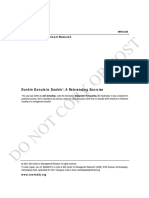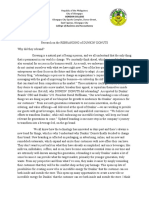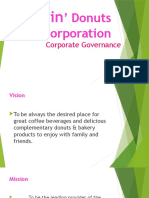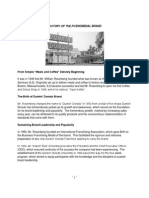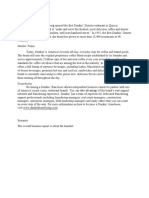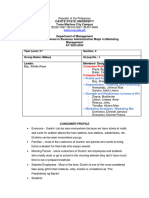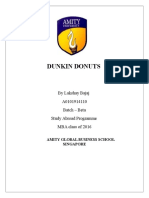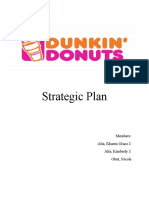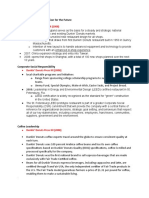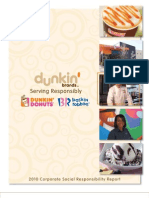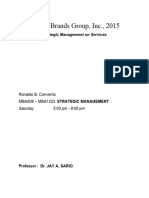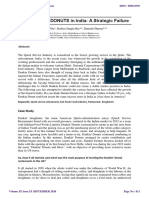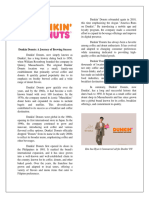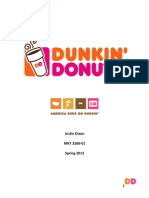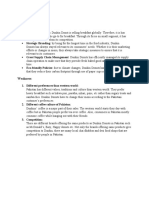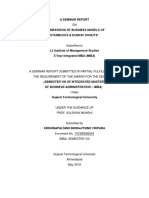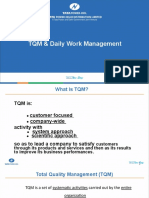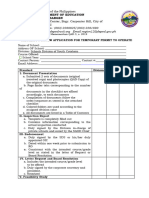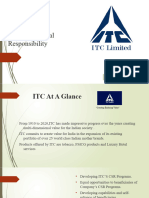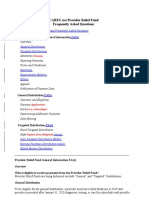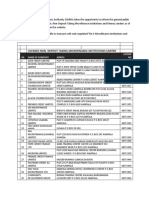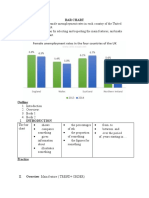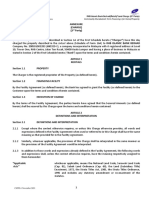0% found this document useful (0 votes)
34 views5 pagesDunkin Donut
The document discusses Dunkin' Donuts, including its mission, vision, values and history. It also covers some recent changes like simplifying the menu and shortening the name to just Dunkin. Issues around labor costs and regulations are mentioned as challenges franchisees face.
Uploaded by
Marckleo BanaagCopyright
© © All Rights Reserved
We take content rights seriously. If you suspect this is your content, claim it here.
Available Formats
Download as DOCX, PDF, TXT or read online on Scribd
0% found this document useful (0 votes)
34 views5 pagesDunkin Donut
The document discusses Dunkin' Donuts, including its mission, vision, values and history. It also covers some recent changes like simplifying the menu and shortening the name to just Dunkin. Issues around labor costs and regulations are mentioned as challenges franchisees face.
Uploaded by
Marckleo BanaagCopyright
© © All Rights Reserved
We take content rights seriously. If you suspect this is your content, claim it here.
Available Formats
Download as DOCX, PDF, TXT or read online on Scribd
/ 5
